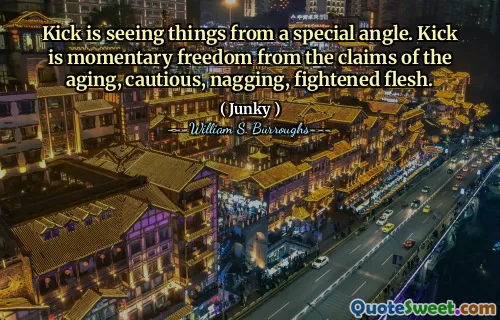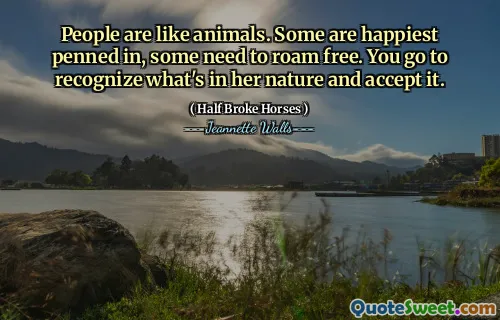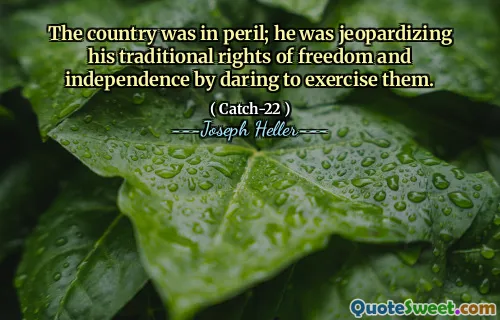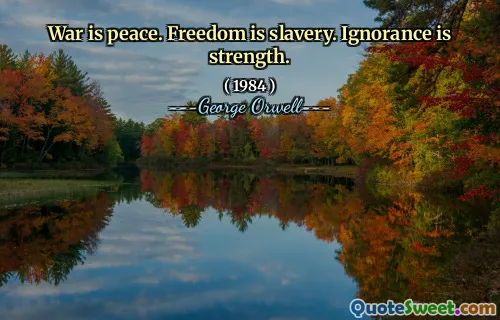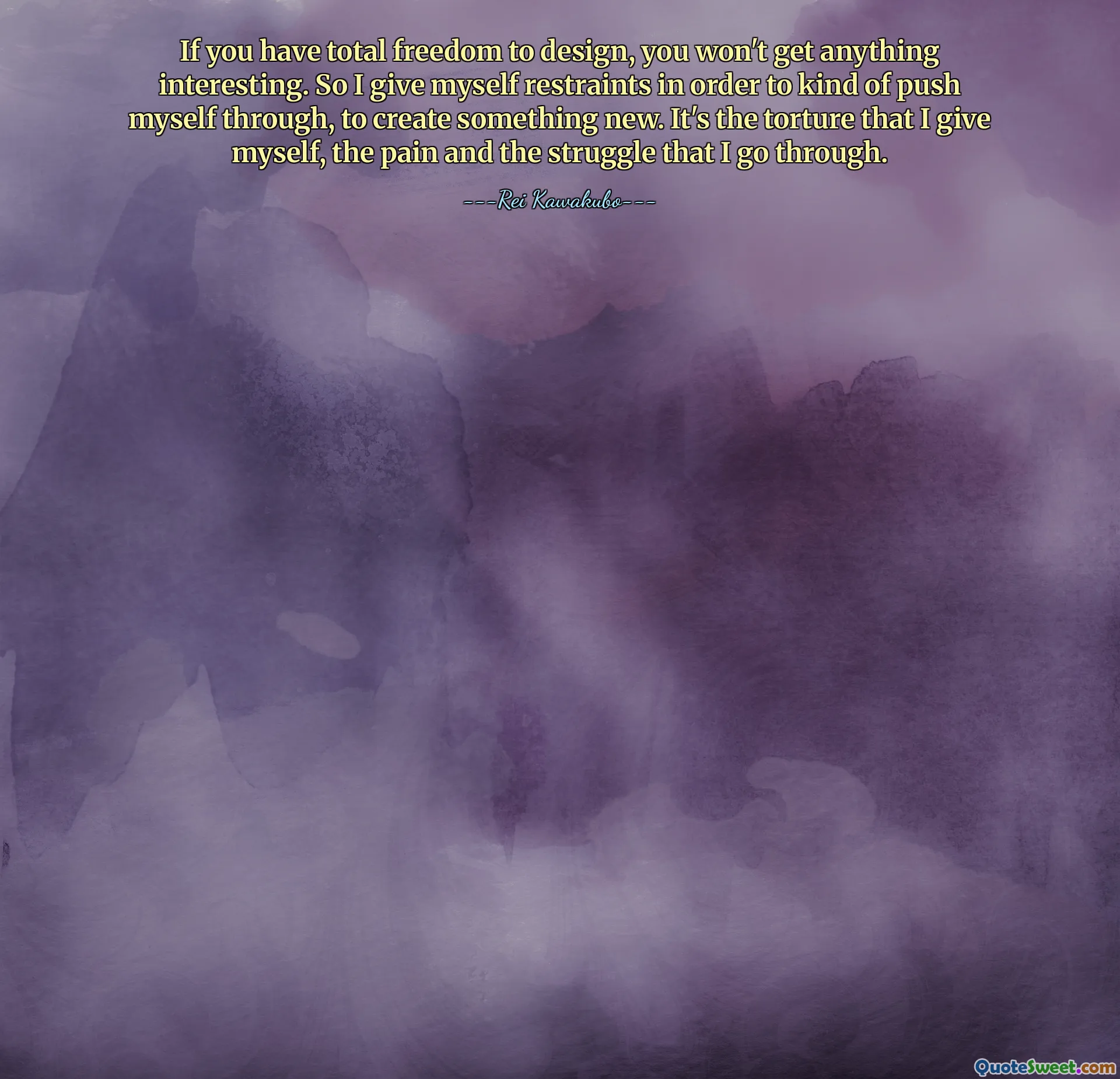
If you have total freedom to design, you won't get anything interesting. So I give myself restraints in order to kind of push myself through, to create something new. It's the torture that I give myself, the pain and the struggle that I go through.
This quote from Rei Kawakubo offers a profound insight into the creative process, emphasizing the importance of self-imposed limitations. It suggests that absolute freedom, which is often idealized in artistic or design endeavors, can paradoxically lead to uninspired or unoriginal outcomes. The introduction of boundaries becomes a catalyst for innovation because it compels the creator to think differently—to push against constraints and discover novel solutions. In this way, struggle and difficulty are not obstacles but necessary conditions for growth and originality.
The idea that creativity thrives under pressure aligns with many creative philosophies and psychological theories. Constraints focus the mind, nurturing discipline and forcing deliberate choices where endless options might overwhelm or disperse the creative energy. Kawakubo’s framing of these self-imposed rules as a form of "torture" is telling—it acknowledges that true creativity often involves discomfort. This concept resonates with the notion that artistic breakthroughs are frequently borne from endurance rather than effortless inspiration.
Ultimately, this perspective demystifies creativity by revealing it as a rugged journey involving risk, pain, and struggle. It encourages embracing difficulties as productive rather than as hindrances. For anyone caught in the pursuit of originality or innovation, Kawakubo's words serve as a compelling reminder that boundaries are not limits but rather the very framework through which creativity is shaped and realized.







